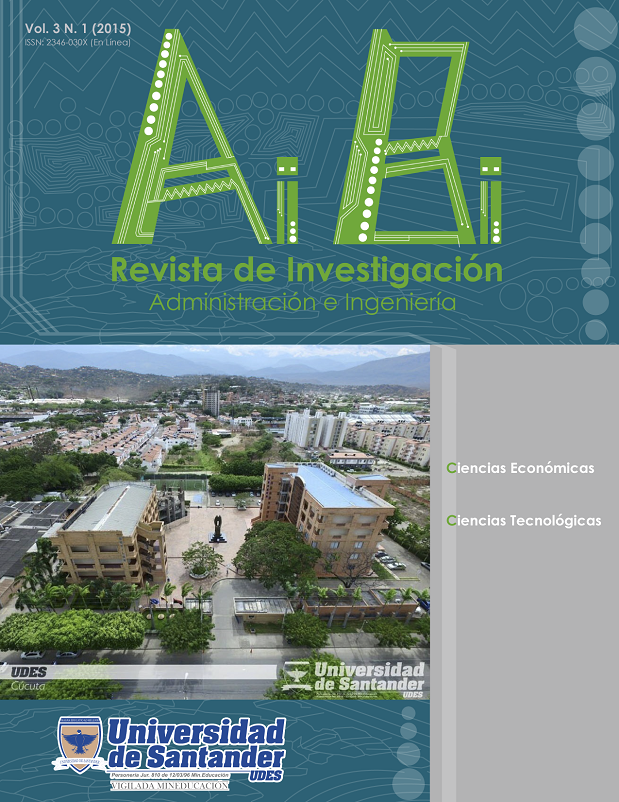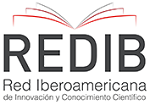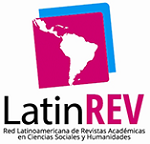Sustainable rural development: a need for agrofood security in Venezuela.
Keywords:
Rural Sustainable development, alimentary security, social participation, co-management, facilitator GovernmentAbstract
The purpose of this investigation analysis is to think about the part that represents the rural development in the success of the
national alimentary system, under the approach of the new sustainability paradigm. The methodology applied has been the documental kind,
behind a detailed bibliographic analysis revision of the information. The document begins by making a short historical reference from the
origin of the term “rural development”, considering the community development as its initial conception; then there is a reflection about the
priority to pay special attention on the sustainable rural development. Later it is made a description of the legal constitutional backgrounds
that must guard the national agro alimentary security, its actual features and some concrete examples that demonstrate the national reality. In
the same way it is accurate the active participation of the rural family, specifically the woman figure, as a determinant actor in the rural
development processes with a high sensibility directed to the daily event and the possible solutions to achieve. By the other hand it is
emphasized how the community leaders participation make the co-management within communities and institutions to be a tangible fact for
the decision making about the detected problems and it is warned about the importance to set the key performance indicators (KPI’s) to carry
out an effective following and objective evaluation from the results obtained. Finally a short strategic analysis about the agro alimentary
situation in Venezuela is made, where the strengths and opportunities of the country are shown, as well as the big weaknesses and threats that
generate a safety and agro alimentary crisis now days. In conclusion: rural world’s problems cannot be approached and solved isolated; a New
Rural Culture is required to reach the sustainable rural development and the specific laws must be facilitators for development and not such a
“straight jacket” without representing the feeling and will of the citizens. The new rurality remarks the importance of the development
representative’s empowerment, regarding with a big emphasis on the women and the community leaders. The creation of the KPI’s for the
following and evaluation of the development programs represents the corner stone due to the fact that the rural development emergent vision
in Venezuela is circumscribed to promote the production systems sustainability with the purpose of guarantee the alimentary security; the
macroeconomic and institutional context, and the current agro alimentary policies framework is not the most favorable for the national agro
alimentary production sustained growth.
References
Orea, G.Ordenaciòn Territorial. Agricola Española. Editorial Mundi Prensa. Madrid (2002).
Herrero, R. Animaciòn de la actividad economica y social en el medio rural. UNCEAR, Revista Renovaciòn Rural Nº 10, 22-26 p,(1990).
Martinez, T. Modelos de Desarrollo rural, una vision utopica de Angel Palerm Vich. Ciencia Ergo Sum, revista multidisciplinaria de la UNAM , Vol 7 numero 3 pp 229-234. (2000).
Valcarcel-Resalts, G. Balance y perspectivas del desarrollo local en España, en Canto, C. (ed). Desarrollo Rural. Ejemplos Europeos. IRYDA, Ministerio de Agricultura y Pesca; Madrid. (1992).
Organizacion de las Naciones Unidas, O. Cumbre de las naciones unidas sobre el medio ambiente y el desarrollo. Rio de Janeiro. (1992).
Moldan y Dahl. (SN de enero de 2007). Review of sustainability indicators: A Scientific Assesment. Recuperado el 30 de enero de 2015, de Island Press: http://www.researchgate.net/publication/257342295_Review_of_Sustainability_Indicators_A_Scientific_Assessment_Tom_Hk_Bedich_Moldan_Arthur_Lyon_Dahl_%28Eds.%29._Island_Press_%282007%29_ISBN-13_978-1-59726-130-2_413_pages
Zambrano, F. Matriz FODA del Sector Agrario Venezolano mimeografiado. No publicado. (2014).
Vilches, A., Gil, D.,Toscano, J. y Macias, O. Desarrollo Rural y Sostenibilidad. [Documento en Linea]. Recuperado 28 de Enero 2015. En: http://www.oei.es/decada/accion.php?accion=22. (Diciembre 2014).
J, Capielo. Estudio De Las Relaciones De Las Organizaciones De Pequeños Y Medianos Productores Agropecuarios Usuarios Del Programa De Extensión Agrícola Mac-Ciara - Banco Mundial. Municipio Urdaneta Del Estado Aragua. Venezuela (Periodo 1996 - 1999. Tesis de Maestria. Universidad Central de Venezuela. 195p. (2002)
Arias, I. Aportes para una discusion sobre el desarrollo rural en Venezuela. Espacios V 26 Nº 2. (2005).
Sarandon S y Flores, C. Evaluación de la sustentabilidad en agroecosistemas una propuesta metodológica. Agroecologia , vol 4 pp 19-28. (2009).
FAO. Statical Yearbook. Latin America and Caribbean Food and agriculture. Estructura poblacional. Recuperado 13 de Enero de 2015 de http://www.fao.org/docrep/019/i3592e/i3592e.pdf
Machado, C. La alternativa agrícola. Libros Marcados I Edicion. (2009).
CENDAS. Diario Primicia. Recuperado el 30 de Enero de 2015, de http://www.primicia.com.ve/economia/cendas-286-fue-la-escasez-de-la-canasta-alimentaria-en-2014.html#sthash.x7UGKATG.dpuf(Diciembre de 2014).
De Muro y Burchi. Education for Rural People and Food Security. A Cross Country Analysis. EUA: FAO. (2007).
Sepulveda, S. Echeverri, R. y Rodriguez, A. Desarrollo Rural Proyecto Pais: politicas publicas, institucionalidad e inversiones. Ponencia presentada en el I Foro Nacional Politicas de Estado para el Desarrollo Rural. Latacunga, Ecuador. (2003).
FEDEAGRO. Fedeagro. Recuperado el 30 de enero de 2015, de http://www.fedeagro.org/detalle6.asp?id=2709 (2014).
E. Salinas. y J Middleton. La ecologia del paisaje como base para el desarrollo sustentable en America Latina (1998).. Recuperado el 30 de Enero de 2015 de: http://www.brocku.ca/epi/lebk/lebk.html. ((Diciembre de 2014)
Downloads
Published
How to Cite
Issue
Section
Downloads
License
The journal offers open access under a Creative Commons Attibution License

This work is under license Creative Commons Attribution (CC BY 4.0).








